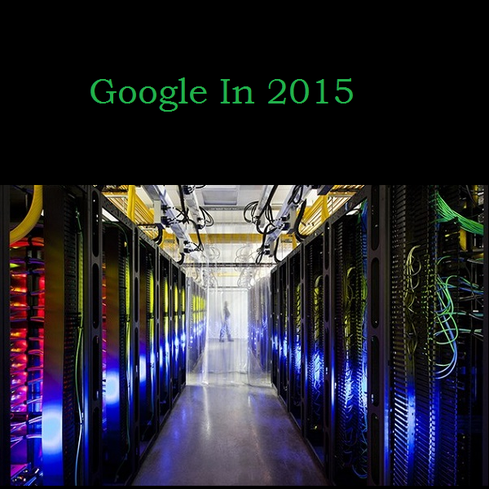FTC: Google Received No Favors During Investigation
The FTC is pushing back against reports that it gave Google favorable treatment due to the search engine giant's lobbying prowess. Google is also facing more scrutiny in Europe.


8 Google Projects To Watch in 2015
8 Google Projects To Watch in 2015 (Click image for larger view and slideshow.)
The US Federal Trade Commission (FTC) is defending the agency's decision to investigate search engine giant Google, but officials are also saying that they regret making some information regarding the investigation public.
In a March 25 statement by three commissioners, including Chairwoman Edith Ramirez and Commissioners Maureen Ohlhausen and Julie Brill, the FTC noted it had conducted an exhaustive investigation of Google’s Internet search practices during 2011 and 2012.
The FTC’s statement drew attention to an article published in The Wall Street Journal, which suggested the organization’s investigation was halted due to Google’s lobbying prowess.
"The article suggests that a series of disparate and unrelated meetings involving FTC officials and executive branch officials or Google representatives somehow affected the Commission’s decision to close the search investigation in early 2013," the statement read. "Not a single fact is offered to substantiate this misleading narrative. "
However, the FTC said it regretted the inadvertent disclosure of confidential documents and information in response to a Freedom of Information Act (FOIA) request, noting it takes seriously its obligation to maintain the confidentiality of information, and said it is taking additional steps to ensure that similar disclosures do not occur in the future.
The 160-page document contained pointed criticism of Google's search and advertising practices, which also accused the company of stealing content from Amazon, TripAdvisor, and Yelp, such as copying product reviews.
Despite the severity of the accusations, in the end the FTC concluded that Google’s search practices were not, "on balance, demonstrably anticompetitive."
In the statement, the FTC noted the decision was in line with the recommendations of the governing body’s Bureau of Competition, Bureau of Economics, and Office of General Counsel.
Google was under investigation by the FTC for two years, during which the company was forced to hand over millions of documents for review.
In January 2013, the FTC announced it had reached a voluntary agreement with Google to change some of its business practices, including ending some past practices that could stifle competition for consumer electronics devices like tablets, smartphones, and gaming consoles, as well as the market for online search advertising.
[Read about the FTC and IoT.]
In the FTC’s statement, Google also agreed "give online advertisers more flexibility to simultaneously manage ad campaigns on Google's AdWords platform and on rival ad platforms; and to refrain from misappropriating online content from so-called 'vertical' Websites that focus on specific categories such as shopping or travel for use in its own vertical offerings."
The FTC’s latest statement comes as Google fights off an investigation by the European Union that it has abused its market dominance.
Europe's antitrust chief, Margrethe Vestager, has been investigating Google to uncover potential anticompetitive practices. Vestager’s predecessor, Joaquín Almunia, had proposed three settlements, but all were scuttled by opponents, including Microsoft and Oracle, who argued the deals didn’t go far enough.
Earlier this month, Google’s Executive Chairman Eric Schmidt met with Vestager, the first meeting between the two since she took office last November.
A month before the meeting, The Wall Street Journal conducted an interview with Vestager in which she said she had been "very impressed" with the arguments of Google’s opponents.
If found guilty of breaking EU regulations, Google could be fined up to 10% of its global revenue.
Attend Interop Las Vegas, the leading independent technology conference and expo series designed to inspire, inform, and connect the world's IT community. In 2015, look for all new programs, networking opportunities, and classes that will help you set your organization’s IT action plan. It happens April 27 to May 1. Register with Discount Code MPOIWK for $200 off Total Access & Conference Passes.
About the Author(s)
You May Also Like
How to Amplify DevOps with DevSecOps
May 22, 2024Generative AI: Use Cases and Risks in 2024
May 29, 2024Smart Service Management
June 4, 2024







